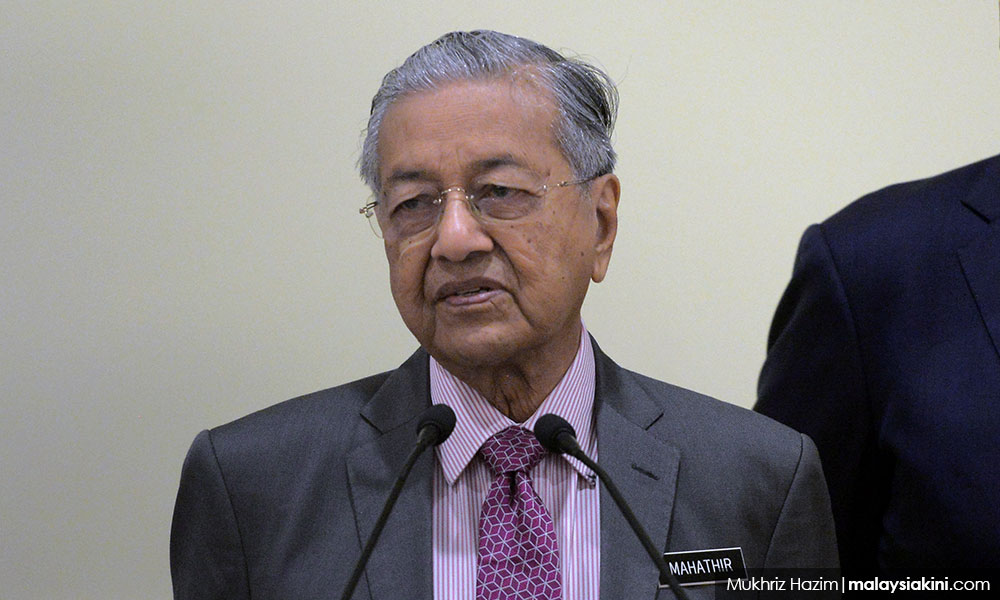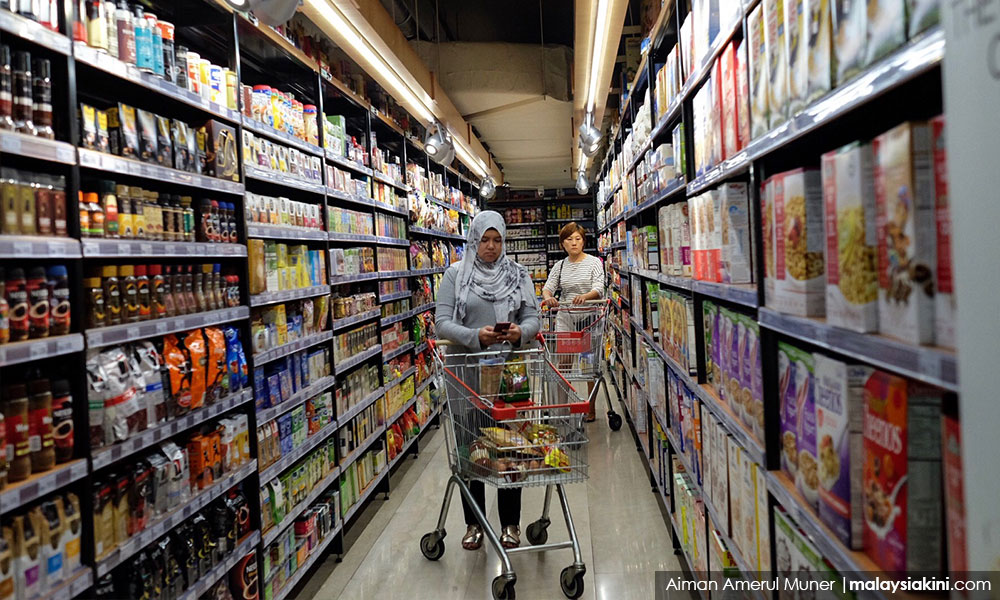
Cooperative movement can play a major role in helping the lower-income (B40) households in urban and rural areas to cope with the rising costs of living, said Prime Minister Dr Mahathir Mohamad.
He said the contribution of the cooperatives was not just to increase the country’s Gross Domestic Product (GDP), but must also be viewed from the aspect of increasing the purchasing power of the people towards achieving the shared prosperity vision.
“In the context of cooperatives, the power in our hands is to fix the reasonable price according to the quality and consumption warranty,” he said when addressing 20,000 members of cooperative societies at the "Cooperative Direction After 100 Years" countdown programme in Cyberjaya today.
Citing Japan as an example, Mahathir said the Japanese Consumer Cooperative Union (JCCU) is the national union of 320 consumer cooperatives with 29 million members.
He said the JCCU was not only controlling the market segment by supplying daily essential items, but also capable of offering a sustainable environment to the local communities.
As such, Mahathir said he welcomed the implementation of Basic Necessities 100 (BA100) programme jointly-organised by the Ministry of Entrepreneur Development, Malaysian Cooperative Societies Commission (SKM) and Angkatan Koperasi Kebangsaan Malaysia Bhd.
The programme, which was approved by the cabinet on Aug 29, is based on e-commerce, which will bring 3,000 retail cooperatives together in offering demand-driven supply of 100 basic necessities to the people across the country.
The prime minister also lauded the SKM’s new initiative to merge key cooperatives in the wholesale and retail sectors by establishing a secondary cooperative to be known as Wholesale and Retail Cooperative Union (Akrab).

Akrab will function as a complement to cooperative linkages that will enable the cooperatives to dominate the entire effective distribution chain, especially in an effort to reduce prices of goods through bulk purchases and efficient distribution facilities, he said.
The initiative, he said, had to be strengthened and expanded through the e-Coop Trade Centre network which could reduce the role and involvement of the middlemen, while stabilising the prices of essential goods in the market.
With the strength of 14,237 cooperatives and 6.1 million members, Mahathir said the cooperative movement in Malaysia should work together and venture into new areas and expand their existing activities to gain control of a wider segment of the market.
In line with the National Entrepreneurship Policy 2030, the prime minister said cooperative was among the important entrepreneurship platforms for the country's economic development.
“Cooperative is one one of the social entrepreneurship models that do not aim solely at making profits, but more at benefiting and ensuring the wellbeing of its members and the community as a whole,” he said.
To that end, Mahathir said cooperative movement needs to have a strong value chain system and a conducive ecosystem and this could be done if the cooperatives were directly involved in manufacturing, supplying and distributing logistics services.
In line with the challenges of the digital economy following the fourth Industrial Revolution (Industry 4.0), he said the cooperative movement must also take more aggressive steps to capture and dominate the global market through the e-Coop Trade Centre platform.
“It's high time for us to make a paradigm shift so that we will not remain stagnant, but able to compete in the Industry 4.0 era," Mahathir said. - Bernama



No comments:
Post a Comment
Note: Only a member of this blog may post a comment.